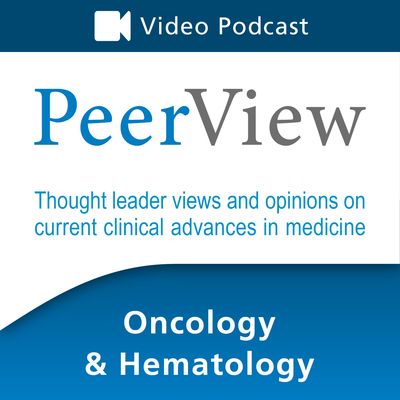PeerView (PVI) is a leading provider of high-quality, innovative continuing education (CME/CE/CPE and MOC) for clinicians and their interprofessional teams. Combining evidence-based medicine and instructional expertise, PeerView activities improve the knowledge, skills, and strategies that support clinical performance and patient outcomes. PeerView makes its educational programming and expert-led presentations and symposia available through its network of popular podcast channels to support specific specialties and conditions. Each episode includes a link to request CME/CE credit for participation. PeerView is solely responsible for the selection of topics, the preparation of editorial content, and the distribution of all materials it publishes.
http://ww2.peerview.com
Milind Javle, MD - Blazing the Therapeutic Management Trail of Biliary Cancers: Get Prepared for a New Era of Molecular- and Mutation-Driven Treatments
Go online to PeerView.com/YTB860 to view the activity, download slides and practice aids, and complete the post-test to earn credit. The rarity and heterogeneity of biliary cancers (eg, cholangiocarcinoma, gallbladder cancer) make this group of malignancies a clinical challenge in GI oncology. Fortunately, recent scientific developments on the genetic and molecular level have led to the clinical testing of several targeted agent classes, including FGFR, IDH, HER2, TRK, and multikinase inhibitors, in patients with biliary cancers. This educational activity, based on a recent PeerView “MasterClass” symposium presented in collaboration with the Cholangiocarcinoma Foundation, provides an in-depth examination of the latest science on the biologic rationale for targeting biliary cancers and the important evidence that is validating potent therapies in a setting where conventional chemotherapy often has limited efficacy and value for patients. Each segment will conclude with expert insights on patient-centric care and strategies for translating new evidence and data into clinical practice for the optimal management of biliary cancers. Upon completion of this activity, participants should be better able to: Summarize the biologic rationale for targeting biliary cancers, including multikinase tumor pathways, NTRK gene fusions, IDH2 mutations, FGFR translocations, and immune checkpoint pathways, Examine the latest efficacy and safety evidence on the use of novel therapeutic strategies, such as multikinase, TRK, IDH, and FGFR inhibitors, in patients with biliary cancers, Describe ongoing clinical trials investigating novel approaches, such as chemotherapy platforms, targeted agents, and immunotherapy, that are recruiting patients with biliary cancers, Apply current and emerging therapeutic strategies into personalized treatment plans for patients with biliary cancers, including in the context of a clinical trial
